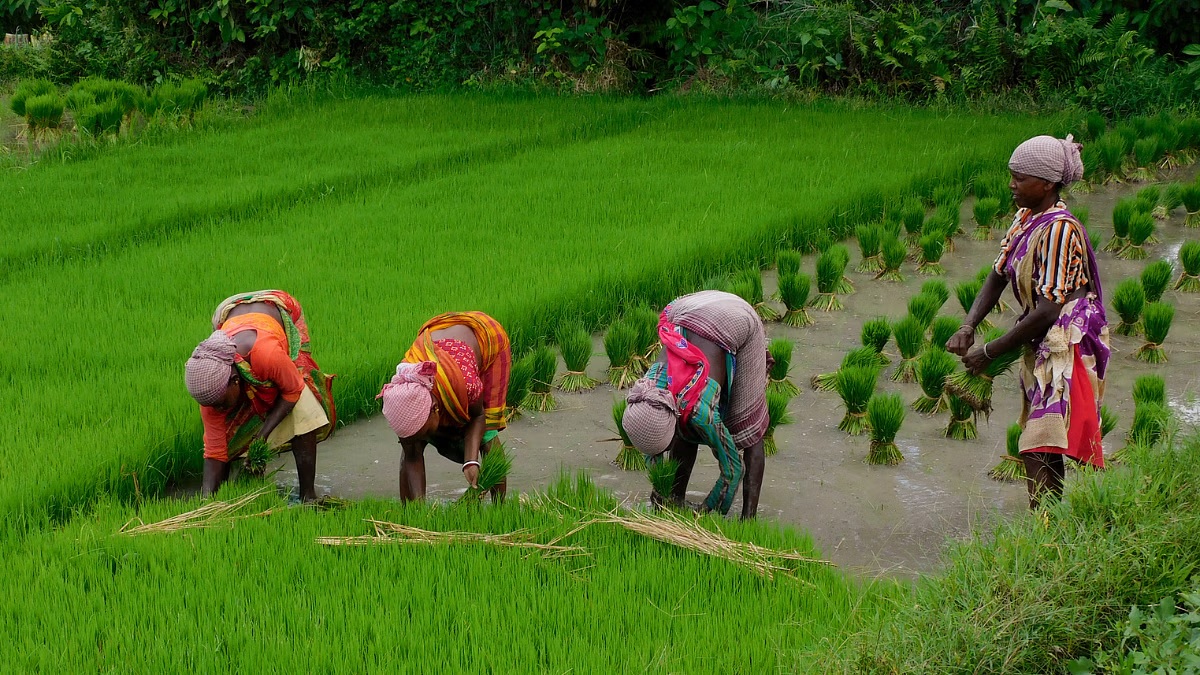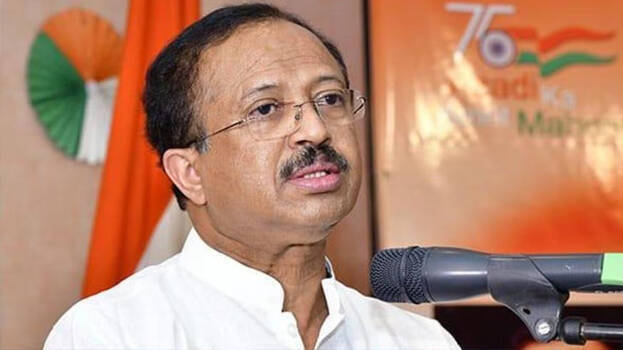For the past seven years, paddy farmers in Kerala have been struggling with financial uncertainty as the Union government allegedly withholds a staggering ₹1,259 crore in dues. State Agriculture Minister recently raised the issue in the Kerala Assembly, stating that these funds were crucial for supporting the procurement of paddy under the central scheme. Farmers, who depend heavily on timely payments, have faced mounting debts and emotional distress due to this prolonged delay. Many families are now grappling with the double blow of rising cultivation costs and unpaid dues.
The minister emphasized that the situation was not merely a financial dispute but a question of survival for thousands of farming families. Paddy farmers in Kerala form the backbone of the state’s agricultural landscape, contributing to both food security and the rural economy. However, the non-release of central funds since 2017 has left procurement agencies cash-strapped, forcing the state to dip into its own resources. While Kerala has been compensating farmers temporarily, the prolonged withholding of funds is creating structural imbalances that threaten long-term stability in the agricultural sector.
Leaders from the farming community have expressed anguish, calling this not just a bureaucratic lapse but a betrayal of promises made to them. They argue that when farmers are already fighting challenges like climate change, floods, and rising fertilizer prices, withholding sanctioned funds is deeply unjust. They are demanding urgent intervention from both state and central authorities. The delay, they warn, may trigger large-scale protests and further escalate the ongoing political tensions between Kerala and the Union government.
Many farmer rights activists argue that the situation in Kerala is symbolic of a larger nationwide neglect of agrarian issues. They note that while urban-centric projects often receive prompt funding, essential agricultural commitments are frequently sidelined. The contrast, they say, reflects the systemic undervaluation of farming in India’s policy priorities. Activists insist that resolving the ₹1,259 crore dues issue is not only about financial justice for Kerala’s farmers but also about signaling respect for agriculture as the backbone of the nation’s economy and food security.
The central government, however, maintains that delays are often the result of procedural bottlenecks and compliance checks. Officials argue that strict monitoring is necessary to prevent misuse of funds under procurement schemes. While this reasoning may explain delays of months, critics point out that withholding funds since 2017 cannot be justified under the same logic. The long gap, they argue, suggests political interference rather than administrative oversight, leaving thousands of farmers caught in a power struggle beyond their control.
Civil society organizations in Kerala are stepping in to support farmers while the stalemate continues. Some NGOs have begun offering small-scale relief packages, food supplies, and loan assistance to affected families. Though limited in scope, these efforts are providing temporary relief in regions hardest hit by the dues delay. Community-driven solutions highlight both the resilience of rural Kerala and the glaring absence of timely state and central intervention. Yet, activists caution that such stopgap measures cannot substitute systemic redress and fair disbursal of funds.
Political Stand-Off Between Kerala and the Centre
This issue has widened the political rift between Kerala’s Left government and the ruling Union regime. Kerala leaders have accused the Centre of deliberate neglect, arguing that agriculture in the state is being penalized due to political differences. They claim that despite repeated representations, memoranda, and even discussions in Parliament, the Ministry of Consumer Affairs and Food has failed to release the dues. According to them, this reflects a lack of seriousness in addressing the grievances of small and marginal farmers.
On the other hand, central officials maintain that procedural bottlenecks and compliance issues are delaying the release of funds. They argue that proper auditing and accountability mechanisms are necessary before any large sum is disbursed. While such explanations may sound technical, Kerala ministers have countered that farmers cannot be made to suffer for years in the name of paperwork. Critics argue that this bureaucratic red tape only deepens farmers’ alienation, making them feel abandoned in times of crisis.
Kerala’s paddy farmers are not only facing delayed payments but also a growing crisis of trust in the procurement system itself. Many have begun questioning whether the central procurement schemes, which are meant to support them, are truly reliable. Farmers say that if dues can be withheld for seven years, the credibility of the Minimum Support Price (MSP) framework is compromised. Some worry that the delay may push cultivators towards abandoning paddy farming altogether, as the risks and costs outweigh the returns. Such a shift could fundamentally alter Kerala’s agricultural balance.
Economists have highlighted the potential macroeconomic consequences of this prolonged withholding of funds. Agriculture contributes significantly to Kerala’s rural economy, and paddy cultivation ensures employment for thousands of laborers. If farmers reduce cultivation due to financial instability, it would shrink demand for agricultural labor, intensifying rural unemployment. This could trigger a ripple effect across other sectors such as trade, transport, and agro-based industries. Ultimately, the dues delay does not merely affect farmers—it has wider economic implications for the entire state.
The issue has also sparked discussions around cooperative federalism in India. Kerala leaders argue that withholding sanctioned funds violates the spirit of federalism and discriminates against states governed by opposition parties. They claim that farmers should not pay the price for political differences between the Union and state governments. This accusation has fueled a larger debate about whether the central government is using financial tools as a means of political pressure, undermining democratic balance.

Farmer organizations across Kerala are preparing for larger mobilizations if the dues are not released soon. Several unions have already held demonstrations outside government offices, demanding immediate payment. Leaders have warned that if the Centre continues to delay, they will intensify protests, possibly joining forces with national farmers’ groups. The looming threat of coordinated agitation adds urgency to the government’s decision-making process. The protests could mirror past nationwide movements that forced policy changes at the highest level.
Meanwhile, ordinary farmers share harrowing personal stories that humanize the statistics. Some recount having to mortgage their small plots of land to cover debts, while others have had to sell livestock to keep households running. Families that depended on paddy cultivation for generations are now being forced to consider migration or daily wage labor for survival. These stories illustrate that the ₹1,259 crore is not an abstract figure but a lifeline for thousands of households struggling to hold onto dignity and livelihood.
Agricultural experts stress that paddy cultivation in Kerala is already vulnerable due to unique ecological challenges. Frequent floods, unpredictable monsoons, and soil salinity from rising sea levels make farming a high-risk activity. In such a context, government support through timely payments is crucial. By withholding dues, the Centre is effectively adding an avoidable layer of financial instability on top of environmental challenges. Experts fear this combination could accelerate the decline of Kerala’s once-thriving paddy fields.
Call for Urgent Resolution
The issue now stands at a critical juncture. With assembly debates intensifying and farmers’ protests looming, the Union government faces increasing pressure to release the pending ₹1,259 crore without further delay. Agricultural experts caution that continued neglect could destabilize Kerala’s food grain economy and erode farmer confidence in government-backed procurement schemes. They emphasize that at a time when India is projecting itself as an agricultural powerhouse, such disputes weaken the credibility of public institutions. For Kerala’s farmers, the demand is simple: fair treatment, timely payments, and recognition of their toil in keeping food security intact.
The opposition parties in Kerala have seized the issue as an opportunity to attack the Union government. They argue that the BJP regime’s neglect of farmers in Kerala exposes its double standards on agricultural welfare. While the Centre often highlights farmer-friendly schemes in northern states, critics say the same urgency is not shown when it comes to southern states like Kerala. This narrative has the potential to further deepen the political divide ahead of elections.
Legal experts have suggested that Kerala may even consider approaching the courts if negotiations with the Centre continue to stall. They point out that withholding dues approved under central schemes could be challenged as a violation of constitutional obligations. However, resorting to litigation may further delay resolution, leaving farmers stuck in prolonged uncertainty. Still, the legal route remains a last-resort option on the table for Kerala’s leadership, should political channels fail.

In rural Kerala, the psychological toll of the crisis is becoming evident. Farmers describe a sense of betrayal and hopelessness as years pass without resolution. Younger generations, witnessing their parents’ struggles, are increasingly unwilling to continue in agriculture. This generational disconnect poses a long-term threat to food security, as fewer youth are prepared to take up farming as a viable career. Thus, the dues crisis has implications not just for today’s farmers but also for the future of Kerala’s agricultural sector.
Ultimately, the ₹1,259 crore dispute reflects a broader crisis of accountability in governance. For farmers, the promise of support through MSP and procurement schemes has been broken by administrative inertia and political tussles. If the issue remains unresolved, it risks undermining faith in welfare systems designed to safeguard vulnerable communities. The resolution of this crisis will determine not only the fate of Kerala’s paddy farmers but also the credibility of India’s agricultural policies at large.
Follow: Kerala Government
Also read: Home | Channel 6 Network – Latest News, Breaking Updates: Politics, Business, Tech & More

